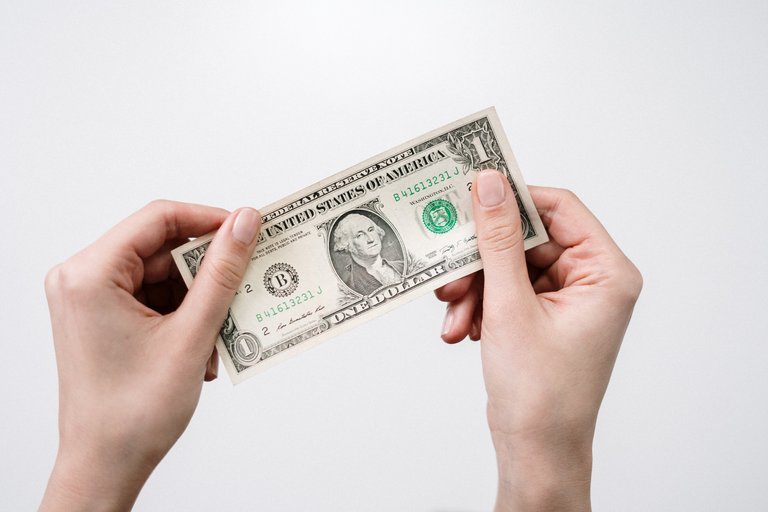Hidden Costs Of Everyday Life
Lately, and in the spirit of the new year, I've been revisiting where my money has been going, in terms of living expenses. This is because I want to make some tweaks and readjust that domain. First, to reduce expenses of course, but also to redirect funds to other domains, such as investing.
But what I've discovered is that when looking beneath the surface of things, I find that everyday expenses carry a huge and unexpected cost, especially when looked from a long term horizon.
In the modern world, we all know the drill. Swipe your coffee, tap for a ride, order groceries with a click. Life has become efficiently streamlined, right?
But beneath this show of convenience lies the realm of invisible expenses. Technically, they're not invisible, because they're there to be seen but the problem is that they're often overlooked for the sake of convenience.
So they remain in the background so to speak, draining our wallets and our precious time without us even raising an eyebrow.
For example, those subscriptions that we barely remembered signing up for, most of them are silently running in the background, taking away a steady stream of cash from our wallet, month after month.
However, I think the biggest cost comes from the digital domain, through social media scrolling, mindless online shopping, and endless newsfeeds. These are like black holes that suck away our time and attention, leaving us drained and unproductive.
Calculate the opportunity cost of those lost hours: what could we have achieved if we reclaimed that time for work, learning, or simply connecting with loved ones?
The Cost Of Convenience
So, we swipe, tap, and click our way through life, oblivious to the unseen currents pulling away at our resources. These seemingly small expenses have a way of rippling outwards, gradually eroding our financial stability and stealing away our precious time.
But the story doesn't end with mere identification. Now comes the crucial next step. Which is calculating the true price tag of convenience. How much are we actually paying for those impulse purchases and hours lost in digital rabbit holes?
The reason why I said the biggest cost comes from the digital domain is because of the sheer volume of content, coupled with near endless notifications and aesthetically curated feeds all designed to keep us perpetually engaged, even if it's just mindlessly scrolling.
Take myself, for instance. I easily lose an hour, maybe even an hour and a half, on social media every day, mostly on YouTube and X(formerly Twitter).
Doing the math, that's 7-10 hours a week, or a staggering 420 hours a year! Let's say I valued my time monetarily at just $15 an hour conservatively. That's nearly $6,300 wasted on digital oblivion each year. In my part of the world, that amount is a little more than a small fortune.
The thing with impulsive purchase is that the initial excitement fades quickly, leaving us with the regret of unnecessary spending and the burden of clutter.
As an example, say one averages a single such impulsive purchase a week, spending around $50 each time. In a year, that would be around $2,600.
Now, compare that to the investment possibilities that $2,600 could've unlock. Perhaps, it could've been put towards building an emergency fund or even contributing to a long-term savings goal.
Looked that way, impulsive purchases feel less like a 'feel good' moment and more like a missed opportunity.
In Closing
Going beyond surface appearances, reveals a lot of interesting things. The hidden costs of everyday life actually hold more influence on our future financial outcome than the occasional big expenditure or flashy purchase.
It's the little, unnoticed leaks that drain our financial buckets dry, and the mindless habits that steal our most precious resource: time.
For me, plugging those leaks and reclaiming that most precious resource is a priority this year. And I think it starts with a mindset shift from 'auto-pilot to intentionality.'
This can happen through becoming more conscious consumers, questioning every swipe, tap, and click before we give away our time and money.
Besides, most of this convenient costs are simply non essential.
Thanks for reading!! Share your thoughts below on the comments.
Posted Using InLeo Alpha


We all need to be careful in our daily spending so we don't over shoot our boundaries.
Yes, exactly. Without having clear boundaries, we may keep getting into financial problems without knowing exactly where it is coming from.
Thanks for stopping by :)
Reading this makes me want to drop my phone right now to get to work😅
Valuing our time is of the essence as well as planning a timeframe of activities to carry out during the day.
In doing the above, time spent on things that could be termed as frivolous over a long period but calming in a short can be curtailed.
Lol, every time I log in on social media, I remember writing this post and the calculations I made on it. Makes me uncomfortable to stay there more than ten minutes 😂😂
That's definitely the essence of it all, valuing our time more and spending it on activities that are actually rewarding(in many ways) than wasting it away into oblivion. Besides, time is a very valuable resource that we can't get back once it is used, unlike money :)
Thanks for stopping by again :)
All so true. Thanks for the lesson learned and the pleasure is always mine.